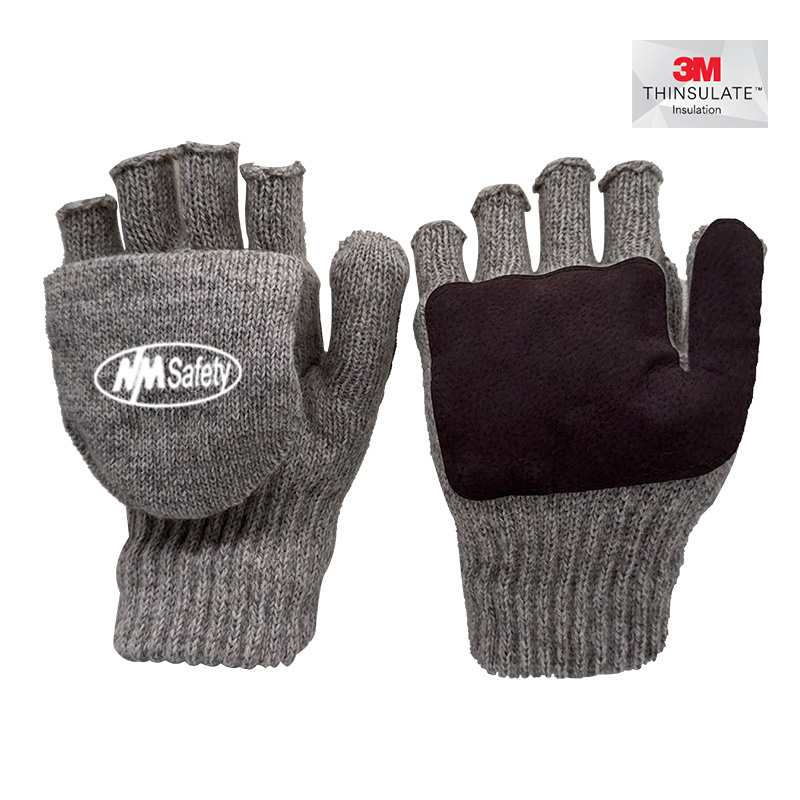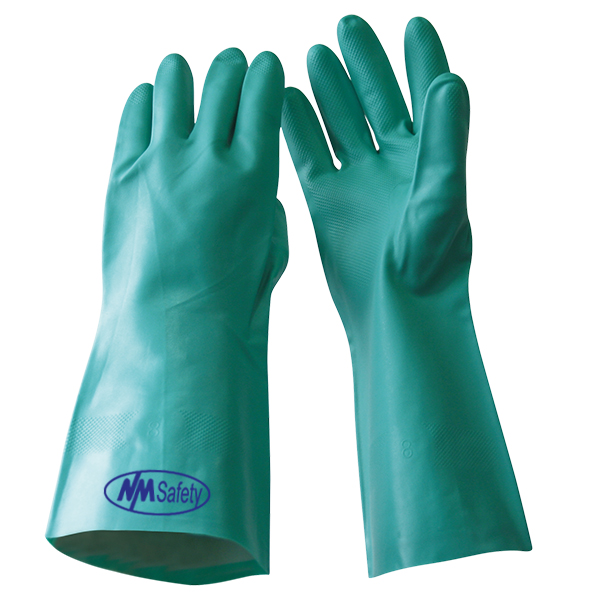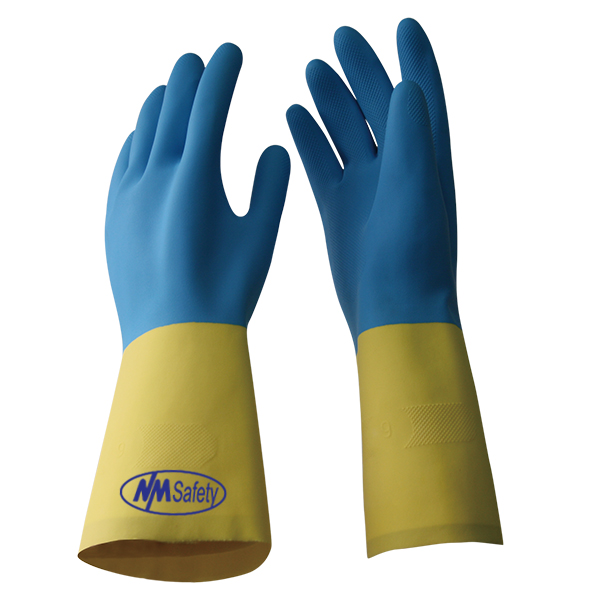Household Gloves
Category
Industry
lf you can't find the product you need, please Email Us and we are happy to help.
What are Household Gloves?
These gloves are designed to protect the hands when conducting chemical jobs. Rubber gloves can be used to shield hands from detergent and allow the users to dishwashing with hot water. Rubber is the material of choice. Since their inception in 1894, household gloves have progressed significantly. They have a "hand" in almost everything, from tooth extraction to dishwashing to investigating big crimes. This is why you should buy these gloves from a well-known household glove supplier.
Major Purposes to Use Household Gloves:
Here are different household to professional tasks with which these gloves are a must. They’re as follows:
Usage in Medicine & Laboratories:
Dentists, physicians, pharmacists, EMTs, veterinarians, and a variety of other healthcare professionals have gloves on hand at all times. It's the most effective strategy to keep everyone protected from infectious illnesses. Scientists and workers in laboratories are juggling a slew of substances. PPE such as rubber gloves and safety eyewear is required in the lab since exposure may not be safe.
Food Preparation & Child Care:
What would it be like to eat meals prepared by a chef who wasn't wearing gloves? Household gloves are required at restaurants, bars, motels, and any other establishment that serves food. Household gloves should be worn by personnel of daycares and after-school programs for particular duties. Cleaning up after snack time, wiping fingerprint off tables, and, of course, diaper duty falls under this category.
Cleaning:
Household gloves are commonly used in janitorial and custodial services, but they may also be used for cleaning at home. They're very useful for dishwashing, vehicle washing, floor scrubbing, and, of course, bathroom cleaning. Buy these gloves from a well-known household glove supplier.
- Cleaning The Bathroom:
Exposure to pollutants such as detergents and solvents in all-purpose cleaners, as well as vinegar, chlorine, and bleach, is not a good idea. Whether you do it yourself or buy your cleaning products, it's vital to remember that when cleaning a toilet, you should always wear gloves.
- When Cleaning With Bleach:
Allow 10 minutes for the bleach to take effect before wiping the area clean with clean water. We suggest wearing gloves and ventilating the area as much as possible while using bleach because bleach solutions can irritate the eyes, skin, and respiratory tract.
Spa and Salons:
Whether you're having a manicure or a new hair color, your stylist will most likely be wearing household gloves. Household gloves can also be used for spa treatments such as face masks and massages.
Automobile Maintenance:
Working on automobiles all day typically coats a mechanic's hands with oil and filth. Rubber gloves make it easier to keep things clean in the garage.
Police & Security Investigations:
If you've ever seen CSI or listened to a true-crime podcast, you know how easily an investigation may be tainted by handling objects without gloves. This is why police officers and detectives will arrive at the scene wearing gloves and gowns. Airport security, fire marshals, and military officials all wear gloves.
Manufacturing & Construction:
Cement, PVC, sawdust, and other materials are all frequent materials encountered by construction workers. Preventing burns and other injuries by putting on gloves before going to work will assist. When processing and packing items, factory employees frequently use rubber gloves. For both the staff and the end-user, this is far more sanitary.
Outdoor Work & Gardening:
You definitely don't want your thumb to become green! Wear rubber gloves when removing weeds, applying pesticides, or cleaning up rubbish to protect your hands but don’t forget to buy these gloves from a well-known household glove supplier to not compromise on quality.
Art Projects & Tattoos:
Household gloves will be used by tattoo artists before they begin work on your new ink, and sculptors may use them for their next job. It's all up to the artist and what they're working on! Household gloves are meant to keep our hands safe from potentially harmful substances. They protect against infections, chemicals, oils, and a variety of other pollutants in the same way as to face masks and sneeze guards do.
Features Of Household Gloves:
These chemicals, like hot water, will erode your skin's oil barrier while removing filth. This can result in dermatitis (a medical word for skin rashes) and, in the worst-case scenario, chemical burns. A pair of gloves is your greatest line of defense.
- Cuff lengths vary to provide more wrist and forearm protection.
- Cuffs with beads for added strength and protection from the liquid rollback.
- Textured grips for improved dexterity and grip.
- Variations in color for color-coding applications.
- Powdered and powder-free variants are available.
- Formulas with a low protein content lower the risk of Type I sensitivity (latex allergies).
- Medical-grade gloves (sometimes known as 'examination gloves') are available.
- Types that are safe to eat.
- Various thicknesses, as well as other options.
What is the significance of household gloves?
Household gloves should also be worn by persons performing cleaning duties to prevent germs from infecting surfaces and to protect themselves from potentially dangerous cleaning chemicals or substances. When doing the dishes, using gloves helps you to handle objects better than you could with just your fingertips. This might help you avoid having a broken dish in the first place. If you spill something, your gloves will protect you from wounds, allowing you to safely clean up the mess.
Pro Tip to avoid any infection:
Wash your hands before wearing gloves is the first step because any organism on your hands will be transmitted to the exterior of the gloves if they aren't clean. Clinicians must also clean their hands after removing gloves since removing gloves without infecting their hands is quite difficult. This allows bacteria to pass from the gloves to your skin.
Our Bestseller:
Neoprene Rubber Gloves:
Gloves constructed of neoprene or nitrile protect hands from chemicals, wounds, and scratches. They're also designed to be lightweight and breathable. They can still be punctured by terrible needles. Nitrile-coated gloves can be washed in the washing machine. They cost less than leather gloves and are more durable than cotton gloves. They are a suitable option for folks who are allergic to latex.
Conclusion:
Using gloves for household tasks is a great step to staying protected. These gloves not only protect you against infections, chemicals, and oils but are also reliable to be used in the kitchen while chopping vegetables and other chores. All you need to do is buy these gloves from a well-known household glove supplier. We typically suggest NMSafety as trying them will never be a bad experience for you.
REQUEST A QUERY




